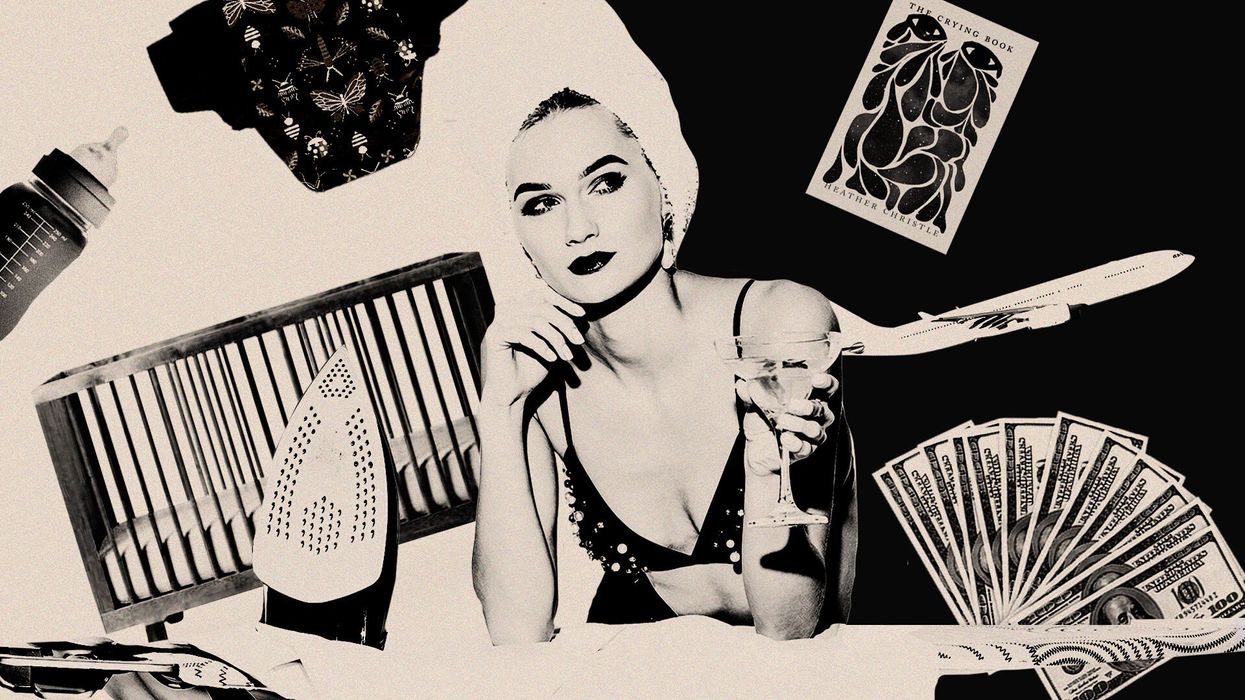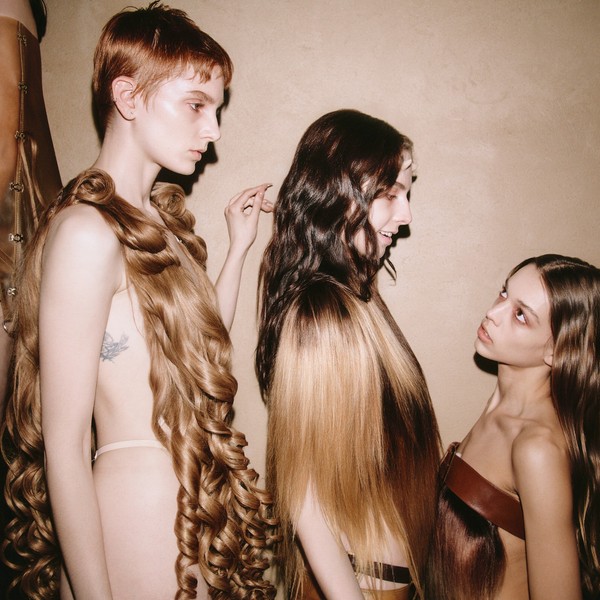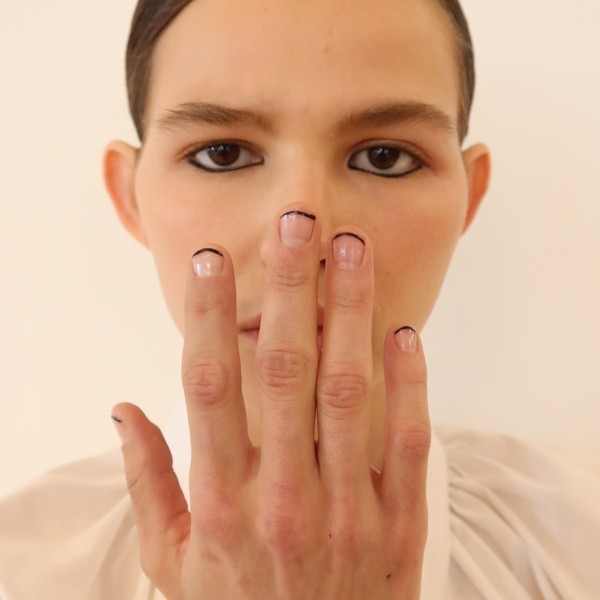Not Sure If You Want Kids? That’s Okay.
We spoke to a therapist about the emotionally charged “kids” debate and her journey with an outside “kid convo” therapist to navigate the territory.

As my friends and I approach thirty, one question lingers behind every conversational corner like a jump scare: “Do you want kids?!” For some people the topic softens them; they adopt a starry-eyed composure, “I’ve always known I wanted kids.” They rattle off how many, the names they have picked out, and the beloved family traditions they hope to re-enact at the Cape and whatnot. I’ve always felt spiteful of those people—not out of judgment; I’m very aware it’s my own jealousy. Yes, I’m envious of the dreamy optimism, but more so of their certainty. I never fantasized about parenthood as a kid. I spent my childhood waiting on my Hogwarts acceptance letter and my young adulthood lunging towards creative (a.k.a. financially suicidal) career goals. When people say they “always knew,” I feel embarrassed that I never gave it much thought. What does that say about me? Am I too myopic? Do I lack maternal instinct? Was I not born to be a mother?
On the flip side, those friends who do want kids feel the same discomfort of that emotional scrutiny when they come across the, “I definitely never want kids” camp. The “don’t” camp has a variety of reasons up their sleeve: “It’s morally corrupt to bring a child into this dying planet,” “I don’t want kids to get in the way of my career,” “I want to be a DINKWAD” (Double Income No Kids With A Dog). Both sides appear to feel judged and defensive. Oftentimes the conversations between the “do want” and “don’t want” camps get dicey. “I don’t want kids unless I make a lot of money.” “That’s classist.” “You have to put your career on hold.” “If you wait too long you won’t have the energy.” “Do you really want to be 60 at your kid’s high school graduation?” People toss around these tautologies as though they aren’t just hypotheticals. For some friends, it’s less hypothetical than others: they’ve found a life partner, they are settled in their career, they pay rent for the eggs they put on ice. For others, it’s all a vision board.
I’ve often been put reflexively in the “don’t want kids” camp because I’ve never prioritized it, but honestly, there’s simply too much out of my control. I’m single. I live in a studio apartment with a cat. My career goals are a lethal combination of ambition and stupidity. On top of all that, I am a woman who dates women, so kids are impossible without not only certainty, but a lot of money and science. I have fantasies of becoming a stepdad sometime in my forties, but there are no guarantees I’ll meet a beautiful divorcée when it’s the right time. My mother dismisses my uncertainty as a phase. “You’ll wake up one day and it will kick in.” I’ve always resented the biological clock. Not only the countdown, but the idea that you’ll wake up and the ticking will propel you into unbridled baby madness. With all these unknowns, certainty seems out of the question. But the “definitely do” and “definitely don’t” conversations leave no room for “I have no clue.”
Somewhere between the defensiveness and preachiness of the kids debate, there is a need to usher in some space for uncertainty. There are far more people navigating that middle ground than the existing dialogue suggests. To illuminate the conversation, I spoke to Katie Green, Associate Clinical Social Worker and therapist, about the nuances of the “kids” debate. Green, who has been married to her partner Chris for nearly six years (together for over eleven), is not only a therapist, but is currently seeing a therapist who specializes in helping couples decide if they want to have kids. Yes, I am interviewing a therapist about her therapist, so you can rest assured we tackled the topic from every angle.
How did you feel about the whole “kids conversation” leading up to now, and what made you two decide to go see the therapist?
“Chris and I had a lot of pros and cons. We have a lot of children in our life–nieces and nephews–and we love them, so it started to prompt those conversations. There are support groups out there for people who are considering having kids, and for people who are ambivalent because that space is so loaded. Bringing it up in your day-to-day life can have some consequences in the form of potentially provoking emotional pain in one of your loved ones. It occurred to me that it would be a good idea to check in and see what aspects of our conversation were healthy and generative, and what was maybe perseverating, overanalyzing, going in circles. I have a tendency to get a bit detail-oriented and fixate on every possible outcome, but the reality of parenthood is that there is absolutely no way to plan perfectly. So where do we stop in the conversation and come to a decision? That's where Chris and I started making the phone calls.”
"The nuclear family was not always historically the way that children are raised, so the role that I play in a child's life might not necessarily be the role of a nuclear parent.”
In conversations with your friends, therapist, and your partner, what area of the “kids conversation” usually gets the most airtime?
“A lot of people have philosophies of why to have kids or not. Philosophically, I'm very reproductive-justice oriented. People have the right to have kids or not, in whatever way they choose. Chris and I do a lot of work visualizing our lives with or without kids. What parts of our lives are going to be more or less fulfilled by having a child that is either ‘legally’ or ‘biologically’ our own? I put that in quotes because it's interesting talking about what it means to be a family. The nuclear family was not always historically the way that children are raised, so the role that I play in a child's life might not necessarily be the role of a nuclear parent. We're exploring options while leaning on the therapist to tell us when we're getting a little bit too cognitive about it.”
What are the types of exercises that your therapist has you guys do either together or on your own?
“Between sessions, we have little brainstorming homework assignments. One of them was just a vision of where your life is five years out—with or without a child or children— and that can mean whatever you want. What was interesting was she told us to, ‘Do it without any logistical constraints.’ We had all sorts of trippy stuff in there. There's a commune, and everyone is able to meet the needs of the child in their own unique way. That was a very utopian vision. Then we had ones with thoughts that were a little bit more grounded. But I realized how constrained even my utopian vision was because it implied that the needs of the child could not be met without all of these people with all these different specialties. It opened up another question about what exactly was appealing about that. That was funny to think about, what I consider a ‘constraint.’ A lot of it comes back to the idea of community.”
"I really like the reproductive justice framework in terms of framing this as a human rights issue. You, you being any person on Earth, have the right to be making these decisions for yourself."
Has the process felt productive for you two? Do you feel like you have more of a language around it?
“One of the things that's really been helpful is just having a space or a container for that conversation. A lot of these exercises are creative ways of learning new things about my partner, too, learning his values and ideas as we’re brainstorming about our future together.”
In relationships you’ve seen, if there is one person that's going to have to significantly compromise, is that a red flag? Or is that something that's a workable situation?
“The cop-out answer is that it’s a case-by-case basis, and it’s different for everyone. What I think is more generally true is that if the person's sense of fulfillment, joy, and goals are going to be best served by a specific decision with respect to kids, then there’s a potential for a huge amount of resentment—if they give up their priority to stay in the relationship. However, for some people, that sense of fulfillment and meeting their goals is going to be better served by remaining in the relationship, even if it is painful to compromise on that decision. The thing that is most important is feeling that you have a sense of agency in the decision. Where things get really hard is if someone feels like they were not given the opportunity to make that decision.”
From your general age group and friendships, what is the most irritating thing that you see in this general “kids conversation” that you wish would just either change or stop?
“Judgment. I know that people have a lot of strong feelings about whether it is morally incumbent upon us to have children, or whether it is morally reprehensible to be having children. Those feelings are okay. We're living in a really difficult time with the climate crisis, and it makes sense to have some strong feelings about that. But it can be extremely hurtful to apply those views in a black-and-white way to the very personal decisions of your friends. I really like the reproductive justice framework in terms of framing this as a human rights issue. You, you being any person on Earth, have the right to be making these decisions for yourself. I think the more people see this as a human right, the more emotionally generative and the less harmful these conversations have the potential to be.”
"People should really try to come at it from a place of self-compassion because there's not a formula to the “should I have a kid” conversation. We're used to solving for X. This isn't something where that works."
People bring a lot of expectations to having a kid. For example, I hear a lot of people talking about wanting to be a young parent because they want a kind of “Gilmore Girls”-type friendship with their kid. Do you think some people focus too much on what the child will add to their life versus their role as a parent?
“I think introspection is really important when you're interacting with a child. When I'm interacting with a child, whether it's my own or not, I like to think about what am I doing for the child's benefit versus what am I doing for my own. There's a lot of stuff coming out now around forcing kids to give hugs and how that's usually more for our benefit than the child’s. What needs of my own am I meeting in the way I'm raising my child? Which needs would be better for me to meet in other ways? My needs are valid, but how is that showing up in my relationship with my child?
“Wanting to have a kid young is valid—metabolisms change (ie. energy levels)—but it’s also valid to wait longer if you feel more comfortable building your financial stability. The Gilmore Girls thing is interesting because there are a lot of differences between a peer relationship and a parent relationship. Sometimes parents need to step into a role that provides more structure than a peer can provide. A child is not going to have the emotional ability to have adult conversations with you. A child is going to have to become their own person who can feed themself and go out and live life eventually.”
Is there any area that we didn't cover that's very integral to the “kids” conversation?
“People should really try to come at it from a place of self-compassion because there's not a formula to the “should I have a kid” conversation. I think a lot of us are used to making decisions that we can solve. We're used to solving for X. This isn't something where that works. It's a scrambling of the psyche. So I would encourage people to just be gentle with yourself and appreciate that what you're doing is really hard.
“Also, child-free people stop being intolerant of parents, and parents stop being intolerant of child-free people. Please stop calling people breeders. There's just so much of this, and it's all inflated on the internet. Be compassionate.”
Want more stories like this?
Is Marital Hate Really "Normal"?
Is Monogamy So Out It's Kinky?
Has Toxic Self-Care Sparked An Empathy Crisis?




